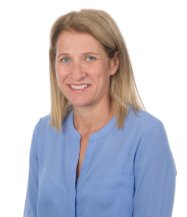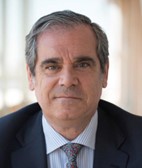Structure
How PGEU Operates
The PGEU has a Secretariat located in Brussels with a staff of five people who coordinates the daily work of the association. The PGEU holds a General Assembly two times per year (June and November) to which all members and observer members are invited to participate. PGEU holds an Annual Symposium which takes place immediately after or before the June General Assembly. The PGEU has a management board known as the Executive Committee whose members are representatives of PGEU member organisations.
The Presidency of the PGEU changes on an annual basis by the way of a rotation system among members. To facilitate the work of the PGEU in giving advice and formulating proposals in many different policy areas relevant to community pharmacy and public health, a number of PGEU Working Groups have been established.
General Assembly
The General Assembly is the supreme body of the association which decides on all important matters including PGEU policy decisions and the annual budget. The General Assembly meets two times per year and all ordinary members and observer members delegations attend. Policy proposals are developed by the Working Groups in collaboration with the Secretariat, and the Executive Committee presents policy proposals to the General Assembly with its recommendations for action.
PGEU Annual Conference
PGEU holds an annual conference every year the day before/after the June General Assembly. The annual conference features expert speakers from the world of pharmacy, the European institutions, national authorities, academia and patient groups.
Executive Committee :
- Meets on a monthly basis.
- Assists the Secretary General in managing the association and implementing the resolutions of the General Assembly.
- Examines policy proposals developed by the Working Groups in collaboration with the Secretariat and presents the proposals and the Committee's recommendations for action to the General Assembly.
- The chair of the Executive Committee is the President.
The Executive Committee consists of 9 members. ExCo Members in 2025 : Bulgaria - Estonia - GD of Luxembourg - Greece - Ireland - Poland - Portugal - Romania - Spain.
Presidency
The President is elected by the national delegations.
President : Clare Fitzell (Ireland) is PGEU President for 2025.

Clare Fitzell is a pharmacist with over 25 years of experience in community-based practice. A graduate of Trinity College Dublin, she has served both as a community pharmacist and a community pharmacy manager. Throughout her diverse career, Clare has undertaken a wide array of roles, gaining extensive experience in pharmacy service delivery, regulatory affairs, and quality management in pharmacy practice.
Currently, Clare holds a leadership position as the Head of Strategic Policy at the Irish Pharmacy Union (IPU). In this role, she is responsible for advocating for advanced practice and developing strategies to support community pharmacists in Ireland.
Passionate about sharing her expertise, Clare collaborates with a variety of multi-disciplinary teams and committees, contributing her deep knowledge of community pharmacy practice.
Vice President : Claude Hostert-Pfeiffer (Luxembourg) is PGEU Vice-President for 2025.

Claude Hostert-Pfeiffer is a community pharmacist since 1994. She runs her own pharmacy since 2007.
She is a founding member of the association pharmacare.lu which aims to develop pharmaceutical care in Luxembourg.
Since 2018 she’s a board member of the SPL (Syndicat des Pharmaciens Luxembourgeois) where her main work field is the development of pharmaceutical care services in Luxembourg.
As part of the task force with the Ministry of Health and the National Health Care System she takes part in the negotiations for new services for community pharmacists in Luxembourg.
Claude is co-author of the white paper: Pharmacie 2030, une vision pour la pharmacie d’officine au Luxembourg.
Treasurer : Jesús Aguilar Santamaría (Spain) is PGEU Treasurer.

Jesús Aguilar Santamaría was born in Burgos and, although he had no family background, he soon felt a strong vocation for pharmacy which, over time, he completed with a solid commitment to public service. The result is a solid expertise, which adds a broad knowledge of the pharmaceutical industry as well as the reality of community pharmacy.
His broad vision of pharmacy, as a reflection of his professional experience and his concern to identify problems and suggest effective solutions, converge in the representative positions he held in the pharmaceutical field for over a decade. Thus, between 2008 and 2015 he was President of the Burgos Pharmacists Chamber and President Regional Pharmaceutical Council of Castile and León. In addition, between 2009 and 2015, he was Vice-President of the General Pharmaceutical Council of Spain.
He was eventually elected in May 2015 President of the General Pharmaceutical Council of Spain, and re-elected for that position in May 2018). As the President of the Spanish Pharmacists he is currently conducting a profound renovation of both the entity and the profession.
Working Groups
The PGEU has to give advice and formulate proposals in many different policy areas relevant to community pharmacy and public health. To facilitate this work, the Executive Committee or the General Assembly can propose the establishment of a working group to deal with specific issues. The working group members are experts appointed by PGEU members. The working groups provide additional technical expertise to the Secretariat in developing policy proposals, which are then presented by the Executive Committee to the General Assembly for approval. The following working groups are currently active:
- Advisory Working Group (AWG) : The AWG is the main consultative body of the PGEU, covering a wide range of policy areas and is currently the key forum for discussion and development of PGEU policy papers.
- European Pharmacists' Professional Forum (EPPF) : The European Pharmacists' Professional Forum deals with professional issues, including issues related to mobility of pharmacists, mutual recognition of professional qualifications, education and training of pharmacists, patient safety, pharmacy practice, collaboration with other stakeholders, etc.
- Economics Working Group (EWG): The EWG deals with current economic issues and with latest developments in health policy and health economics affecting community pharmacies. These include trends related to fiscal sustainability of health systems, strengthening of primary care services, pricing and reimbursement policies, health technology assessment, digitalization in healthcare.
About Us